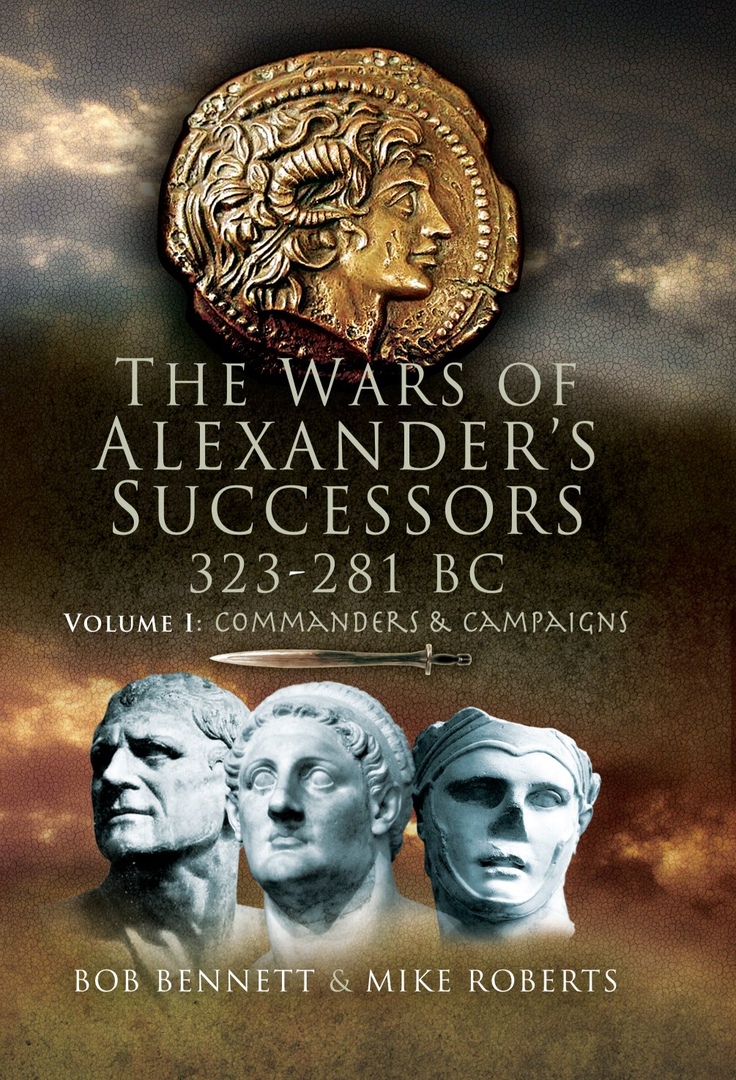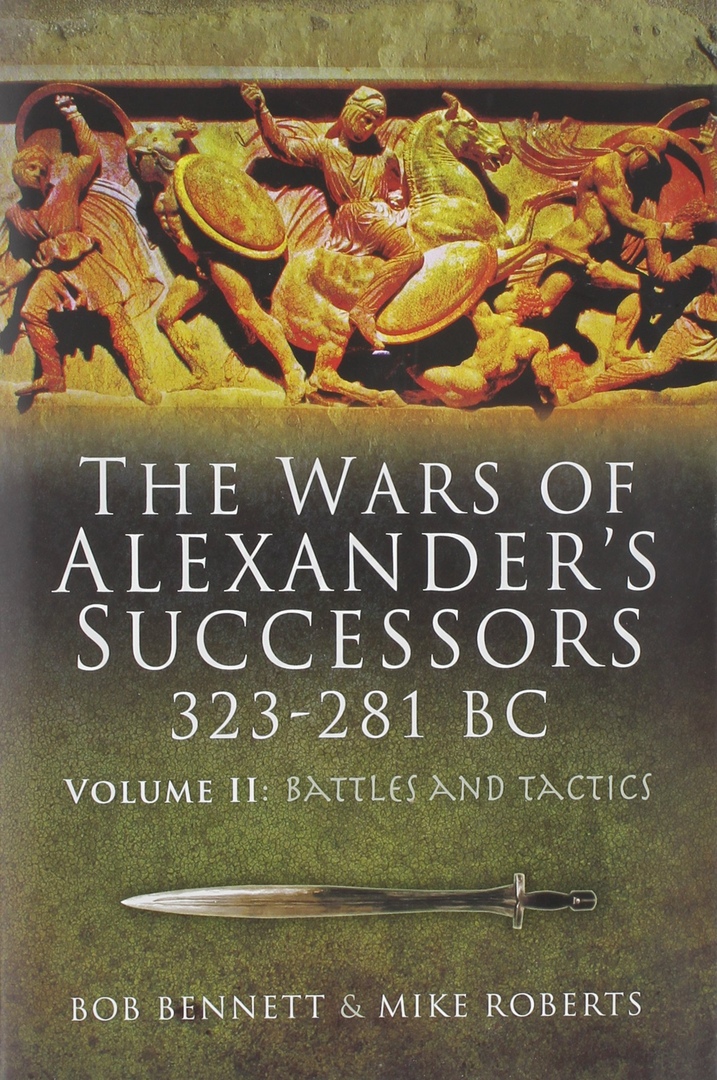The Wars of Alexander’s Successors, 323–281 BC, Volume 1: Commanders and Campaigns – Bob Bennett, Mike Roberts
1) The Wars of Alexander’s Successors, 323–281 BC, Volume 1: Commanders and Campaigns – Bob Bennett, Mike Roberts
Pen and Sword Military | 2010 | EPUB
When the dying Alexander the Great was asked to whom he bequeathed his vast empire, he supposedly replied ‘to the strongest’. There ensued a long series of struggles between his generals and governors for control of these territories. Most of these Diadochi (Successors) were consummate professionals who had learnt the art of war under Alexander or even his father, Philip. Few died a peaceful death and the last survivors of this tough breed were still leading their armies against each other well into their seventies.
Colorful characters, epic battles, treachery and subterfuge make this a period with great appeal to anyone interested in ancient history and ancient warfare in particular. The wars shaped the map from the Balkans to India for the next couple of centuries.
This first volume introduces the key personalities – characters such as Antigonos ‘Monopthalmus’ (the One-eyed) and his son ‘Demetrius ‘Poliorcetes’ (the Besieger), Seleucus ‘Nicator’ (‘the Victorious’) and Ptolemy ‘Soter’ (‘the Saviour’) – and gives a narrative of the causes and course of these wars from the death of Alexander to the Battle of Corupedium (281 BC) when the last two original Diadochi faced each other one final time.
2) The Wars of Alexander’s Successors, 323–281 BC, Volume 2: Battles and Tactics – Bob Bennett, Mike Roberts
Pen and Sword Military | 2010 | DJVU
When the dying Alexander the Great was asked to whom he bequeathed his vast empire, he supposedly replied ‘to the strongest.’ There ensued a long series of struggles between his generals and governors for control of these vast territories.Most of these Diadochi, or successors, were consummate professionals who had learned their trade under Alexander and, in some cases, his father Philip. This second volume studies how they applied that experience and further developed the art of war in a further four decades of warfare. This is a period rich in fascinating tactical developments. The all-conquering Macedonian war machine developed by Philip and Alexander was adapted in various ways (such as the addition of war elephants) by the different successors according to their resources. Siege and naval warfare is also included.
 1 / 2
1 / 2 2 / 2
2 / 2

